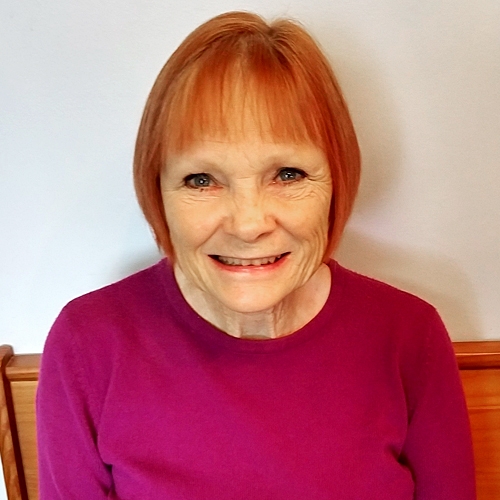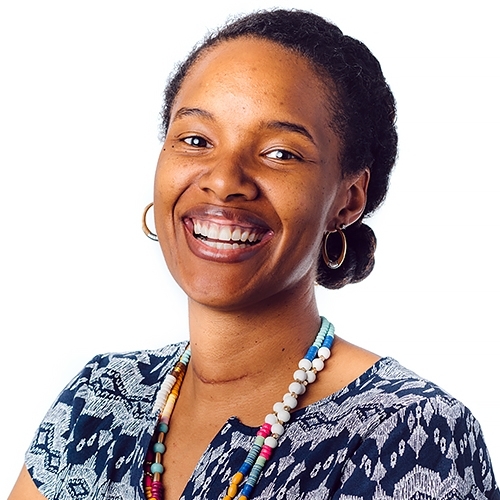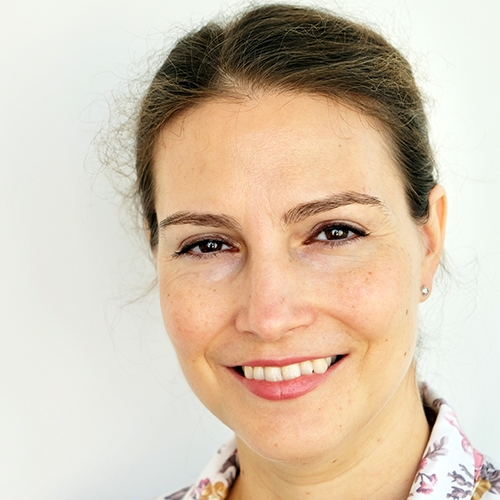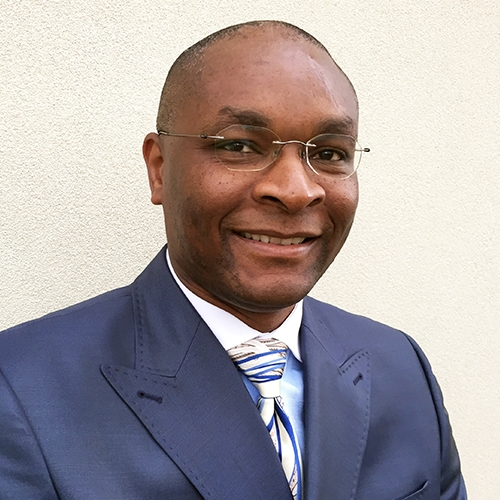
Psychology, Sociology, & Anthropology for IBCLCs - 5 CERPs - Pack 1
Looking to enhance your knowledge of V. Psychology, Sociology, and Anthropology as indicated by the IBCLC Detailed Content Outline and your personalized Professional Development Plan (PPDP)? Look no further than our 5-hour comprehensive lecture package. Our program covers the continuing education requirements for this category and provides a great opportunity for you to refine your skills and deepen your understanding in this area.
To ensure the best learning experience, please confirm you haven't already taken any of these lectures at the time of purchase. However, if you encounter any issues after purchase, simply reach out to [email protected], and we'll work to find a suitable replacement for you.


I am the mother of three breastfed children. Certified as an IBCLC in 2007, the next year, in 2008, setup the first IBCLC clinic in the medical center in Taiwan. As the President of the Chinese Lactation Consultant Association from 2015 till now. I have been teaching in the university for 30 years and as a part-time associate professor in the Department of Midwife & Women Health, National Taipei University of Nursing and Health Science, Taiwan now. After I retired from the university, I fund and as the CEO of WELL International Co., aims to promote the three-stages certification of profession lactation support competence.
Topic: Communications/Connection and Conflict Resolution Within the Extended Family - [View Abstract]
Objective 1: Describe the B theory of breastfeeding and mindfulness-based stress reduction
Objective 2: Apply mindfulness to change the brain’s perception and feedback of breastfeeding
Objective 3: Describe strategies for empowering families to work with their care provider to solve their breastfeeding difficulties
Breast is best. The World Health Organization recommends that exclusive breastfeeding for at least the first six months after birth. Breastfeeding 10 times a day and each lasts for 30 minutes for 180 days; that sum up to 54,000 minutes devoted for "healthy next generation". Wang (2008) propose the B theory of breastfeeding: Baby-Breast-Brain-BackUp axis, an interpretation and application of the lactation mechanism with a new perspective. Breastfeeding is involving physical, psychological and social aspects of life. How does the lactation consultant based on counseling skills, apply the Mindfulness-Based Stress Reduction (MBSR) to empower breastfeeding women, who can activate the positive brain feedback, prompt oxytocin reflexes, and bravely express individual needs. A breastfeeding friendly society therefore be fostered and the breastfeeding family could truly enjoy their breastfeeding goals & lives.


Nancy has been providing breastfeeding help and support for 40 years and has been a national speaker for 30. She has been a perinatal educator and consultant since the late 1970’s. Her second career is that of a Marriage and Family Therapist. Her passion is to explore the larger picture of the mother-baby dyad in the context of the breastfeeding relationship.
Topic: Teens and Breastfeeding - [View Abstract]
Objective 1: List at least three unique challenges for the teen mother;
Objective 2: Describe breastfeeding barriers for the teen mother; and
Objective 3: Discuss strategies for supporting the teen mother.
Current information on working with teen mothers includes issues such as body art, nutrition, grandmothers, and adolescent brain development. Strategies for connecting with and teaching these mothers will be addressed.


Nikki Hunter Greenaway is a board-certified family nurse practitioner and internationally board-certified lactation consultant in New Orleans, Louisiana. In 2011, she founded Nurse Nikki Family & Maternity Services, a health consulting firm where she educates and counsels women, families, schools and businesses about pregnancy, birth, postpartum, breastfeeding, and new baby care. October 2018 she opened Bloom Maternal Health, a women’s health clinic that provides prenatal counseling and postpartum recovery care. Nurse Nikki is the co-founder of Louisiana’s first free-standing infant feeding clinic, the New Orleans Breastfeeding Center. She also co-created Café au Lait Breastfeeding Circle for Families of Color and Nikki & Nikki Lactation Career Consultants two important resources needed to improve breastfeeding outcomes specifically in the Black community. Nikki is a wife and mother of 3 mini breastfeeding activists.
Objective 1: Identify barriers breastfeeding mothers experience in regards to intimacy;
Objective 2: Explain the relationship between prolactin, oxytocin and estrogen and how it relates to physical and mental sexual arousal;
Objective 3: Describe resources and counseling techniques consultants can use to provide support;
Lactation consultations delve into perfecting a latch, maximizing milk supply and even recovering from giving birth. Very few visits discuss how breastfeeding can affect intimacy. The research on breastfeeding and intimacy is scarce and the assessment tools and evidence-based solutions are almost nonexistent. Perinatal providers often don’t recognize the relevance or have time to troubleshoot the inquiries. Lactation specialists understand that the situation exists but may not know how to approach the line of questioning or how to provide solutions. This webinar will illustrate the relationship between lactation-specific hormones and sex hormones. It will present the mental and physical struggles that families face when tackling the topic of returning to intimacy when breastfeeding. Providers and lactation consultants will receive recommendations on how to approach, assess and assist in resolving clients’ perceptions and concerns surrounding breastfeeding and intimacy. Discussion will offer web resources and how to add the topic into community resources.


Dr. Smaranda Nay is a Family Doctor, an IBCLC, a Personal Development Counselor and a mother. She has been studying Transactional Analysis psychotherapy since 2007 and is now in her second year of training to become a Somatic Experience therapist. She uses her knowledge to teach parents how to connect with their children and how to attune to their babies’ needs, both through individual counselling sessions and in classes. She is part of the Romanian Lactation Consultants Association and holds lactation education courses for future IBCLCs. She gives lactation counselling consults and holds breastfeeding and childcare courses.
She also holds personal development workshops for teenagers and adults, collaborating with non-formal education organizations and schools. She is particularly curious about the development of an attuned relationship between people and building intimacy and trust. Working with babies, she observes the parent-child connection and explores its potential in healing and growth, and how it impacts the future development of the individual. Working with teenagers and adults, she facilitates ways in which childhood disruptions can be healed in the present.
Objective 1: Describe the importance of communicating with babies.
Objective 2: Discuss how to make the connection with a baby.
Objective 3: Describe ways that lactation and healthcare profesisonals can teach parents to connect with their babies
This is a presentation on how explaining things to babies of all ages, including newborns, can help solve difficult moments during lactation in the parent-baby relationship and lead to healthy parenting. Communication blocks happen frequently due to changes, events, and anxiety, and sometimes they can interfere with breastfeeding/chestfeeding. At least some of these blocks can be solved by communicating with the baby in an open, compassionate, and respectful way.
Lactation and healthcare professionals will learn how to approach such situations, what questions to ask and what suggestions to make to parents so they and their babies can overcome the situation. Lactation and healthcare professionals will also learn about different cases that I have encountered, how the method was applied and what were the results.
I deeply believe that the way we talk to babies, communicate with them and how we teach parents to do that is an essential part of our work. On the long term, it can make an important difference to how those babies are treated, respected, parented, educated, and raised and what kind of adults they will become.


Muswamba Mwamba is a father of five breastfed children. An International Board-Certified Lactation Consultant, a public health practitioner, and a scholar; his research interests focus on immigrant health within the minority group in the context of the US health disparity. Muswamba helps mothers and babies obtain the best health outcomes by teaching and inspiring their partner/ father to fight to remove barriers that prevent successful breastfeeding. As a professor at the University of North Texas at Dallas, Muswamba disseminates clinical and non-clinical information to inform graduate students of significant developments and trends in the field of infant feeding.
Muswamba is a lifelong learner. He trained in Belgium, where he earned a bachelor's degree in agricultural engineering, a master's degree in human nutrition biochemistry, and a second master's degree in food science and technology. Witnessing striking disparity in his maternal and child health practice, he deepened his understanding of public health's complexity in the US and elsewhere. He earned a master's degree in Public Health at the University of North Texas and a doctoral degree in Public Health Executive Leadership from the University of North Carolina at Chapel Hill.
Objective 1: Discuss how male breastfeeding support intervention may reduce some of the adverse effects of psychosocial factors in African American communities.
Objective 2: Describe how African American and Black immigrant men experience breastfeeding in the U.S. within the context of the African American minority group.
Objective 3: Discuss Black fathers’ cultural expectations and relationship toward breastfeeding behaviors, identifying what is distinct and common about Black immigrants and African American.
Male breastfeeding support is evidenced to influence breastfeeding behaviors. Fathers play a vital role in determining women's choice to breastfeed. Many studies regarding fathers' breastfeeding influence included participants from a variety of ethnic backgrounds. Only a few studies examined African American men's breastfeeding attitudes. Within the U.S. disparity context, Black African immigrant breastfeeding experiences have not been measured.
The social and cultural breastfeeding experiences of Congolese Immigrants compared to those of African Americans were explored, analyzed, and contrasted. In the immigrant study, the breastfeeding cultural practice's visibility enables the breastfeeding perceptions of Congolese fathers. They identify their Congolese origin as a warrant for breastfeeding decisions and practice. Breastfeeding is a natural process that does not require prior deliberations between expectant couples. Breastmilk is valued for its God-given virtues rather than its medical benefits.
In the cultural context of African American, family, and friends enable breastfeeding support perceptions. Personal experiences and knowledge of breastfeeding benefits are predictors of breastfeeding decisions. However, there is not a cultural, existential framework supporting breastfeeding.
This study's findings and recommendations guided the development of a dynamic African American men breastfeeding support toolkit designed to utilize existing public health structures.
Accreditation
CERPs - Continuing Education Recognition Points
Applicable to IBCLC Lactation Consultants, Certified Lactation Consultants (CLCs), CBEs, CLE, Doulas & Birth Educators. GOLD Conferences has been designated as a Long Term Provider of CERPs by IBLCE--Approval #CLT114-07.
This program is approved for 5 CERPs (4 L-CERPs and 1 R-CERP).
If you have already participated in any of these presentations, you are not eligible to receive additional credits for viewing it again. Please email [email protected] if you have any questions.
Additional Details:
Viewing time: 6 Weeks
Tags / Categories
(IBCLC) Education and Communication, (IBCLC) Psychology, Sociology, and Anthropology, Breastfeeding Support, Counseling Skills, Family & Social Support, Mindfulness & Stress Reduction in Breastfeeding, Sexual Health, Teens & Breastfeeding
How much time do I have to view the presentations?
- The viewing time will be specified for each product. When you purchase multiple items in your cart, the viewing time becomes CUMULATIVE. Ex. Lecture 1= 2 weeks and Lecture Pack 2 = 4 Weeks, you will have a total of 6 weeks viewing time for ALL the presentations made in that purchase.
- Time for viewing the talks begins once you purchase the product. For Live Webinars & Symposiums, the viewing period begins from when the live event takes place. Presentations can be accessed 24/7 and can be viewed as many times as you like during the viewing period.
What are bundled lectures?
- Presentations may be available individually or via a bundled package. Bundled lectures are a set of lectures that have been put together based on a specific category or topic. Some lectures will be available in both individual and lecture form, whereas others will be available only via a bundled lecture pack.
Will there be Handouts?
- YES! Each lecture comes with a PDF handout provided by the Speaker.
Some lectures include a Q&A, what does that mean?
- During our online conferences, presentations that occur live are also followed by a short 15 minute Question & Answer Session. The Speaker addresses questions that were posted by Delegates during the presentation. We include the recording of these Q&A Sessions as a bonus for you.
How can I receive a Certificate?
- If this presentation offers a certificate, once you are done viewing the lecture or the lectures within a bundle, submit your attendance record in order to be able to download your certificate. You'll be able to see which credits are offered for the lecture by hovering over the "Credits Available" link within the "Speakers & Topics" tab.
Professionals that selected this package also viewed

|
|

|









